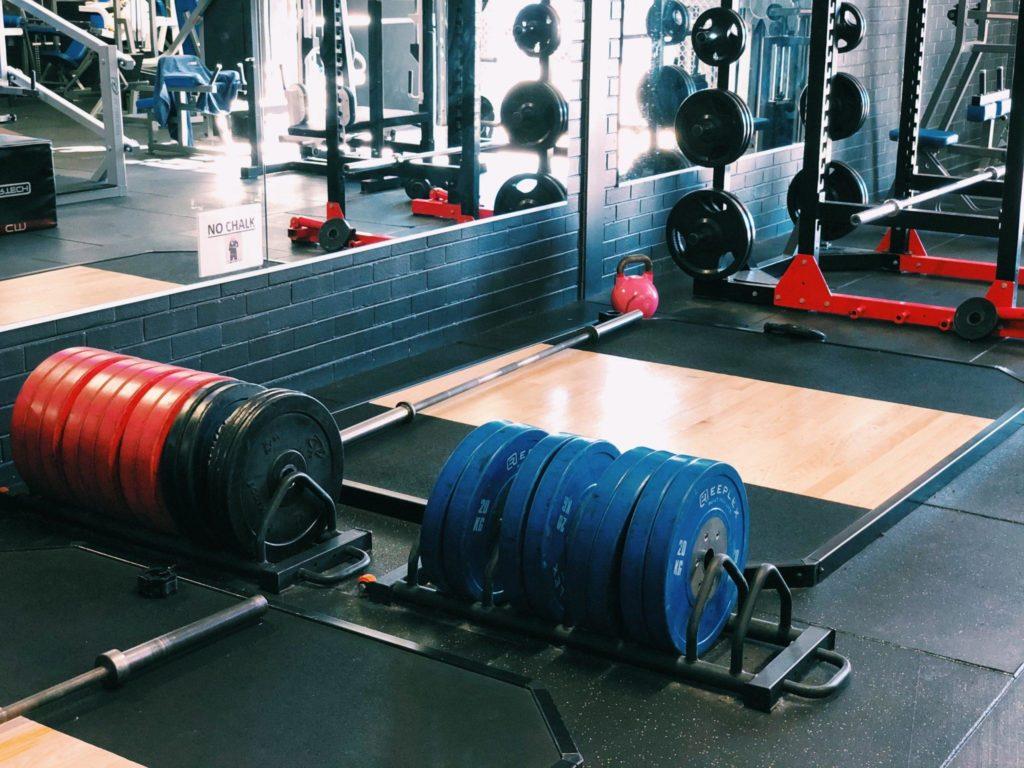Insurance is a key part of running any business, especially a gym. You’re in an environment that naturally carries a higher risk of injury and deals with the public daily. Gym insurance can range from a basic to a more comprehensive package.
Depending on your business, you may benefit from a more complex insurance policy. Whether you’re a Pilates studio or martial arts gym, you need cover. Your insurance is made up of a combination of policies to suit your exact needs. In this article, we talk about why you need gym insurance and the different policies your business needs.
Skip ahead to:
- What is Gym Insurance?
- Why Do You Need Gym Insurance?
- How Much Does Gym Insurance Cost?
- 8 Types of Gym Insurance for Your Fitness Business
What is Gym Insurance?
All businesses, including gyms, operate with a certain degree of risk. Sometimes you can deal with those risks. Other times you can do everything possible to avoid it occurring in the first place. But the unexpected can still happen no matter how prepared you are. When something unexpected happens, it can result in financial losses in your business.
Your gym insurance protects your business when these unexpected events happen. At its core gym insurance protects your business so that in certain situations, the insurance will cover the costs.
Gym insurance is a combination of policies, like general liability coverage, and worker’s compensation. Your specific policy really depends on your facility, what you offer, and how big your gym is. These days, gyms come in all shapes and sizes. Every business from boutique health clubs and fitness studios to 24/7 big box gyms need the right insurance.
Why Do You Need Gym Insurance?
Lawsuits and other events have the potential to drain your entire bank balance, so you need to protect yourself and your business. While some parts of your policy will help you meet contractual obligations, others will protect you from lawsuits and hazards that can arise.
There is a possibility for claims in every business, but with physical activity and gym equipment, there is a bigger risk of injury. In 2019, 468,315 ended up in the emergency room with injuries from sports, recreation, and exercise. Although not all of these injuries happened at the gym, it’s clear that there is a naturally higher risk of injury and issues when it comes to businesses involving physical activity and exercise.
It’s not just a risk of injury that gyms need to protect themselves from. Things like theft, fire, cyber-attacks, workplace injuries, negligence, and client medical bills could all leave you out of pocket. Something like a fire could destroy equipment and your building. Without cover from your insurance policy, you will be left footing the bill. This has the potential to wipe out your bank balance and business in the process.
Even though your members’ safety is at the core of your business, accidents do happen. Sometimes, the best-run gyms have issues. Your member and employees are just people at the end of the day. It’s far too easy to trip and fall even at the best of times. By protecting your business from the start, you can rest assured that you’re covered in all eventualities.
How Much Does Gym Insurance Cost?
Due to the higher risk of gyms, in comparison to other businesses, insurance costs do tend to be higher. Having said that, the total cost of your gym insurance can vary massively from one gym to another.
There are several factors that affect the cost of your insurance:
- Size
- Location
- Number of employees
- Services you offer
- Value of your business
For small to medium-sized gyms, you can expect public liability insurance to start at about $1,500. When you add on worker’s compensation, property protection, and professional liability, you’re looking at a starting point of just under $3,500. This is an essential baseline for insurance and doesn’t include things like cyber protection and medical payments coverage. Although adding more coverage to your policy may increase the price, in the long-term you are protecting your business.
Some policies may not be relevant for your business, so you don’t need them. Whereas, others will be a necessity. You need to have a solid understanding of the risks associated with your business so that you find the best possible cover that meets the specific needs of your gym. As your gym gets larger and makes more revenue, your insurance costs will also go up. You can expect to pay much higher costs for large facilities.
8 Types of Gym Insurance for Your Fitness Business
Your insurance is a mixture of policies. It’s important to create a protective package that serves your business. The last thing you want is to find out you’re not covered by your insurance in the event of a problem. By understanding your business and the types of cover available, you can protect your business with the most relevant policies. Here are eight types of gym insurance for your fitness business.
1. General Liability
General liability covers your business for claims from non-employees that come from bodily injuries, or property to damage that you may be liable for. For example, if someone trips over a cable and injures themselves, you would be liable. The majority of general liability policies also cover advertising injuries, defamation, and damage to rented properties.
This type of insurance is considered one of the most important to have, but your insurance often includes a mixture of policies. If a member gets injured during a personal training session or hurts themselves on your gym equipment, you may be liable for medical costs and, in some cases, lost wages. General liability would cover these costs.
The Customer
Engagement Playbook
for Your Fitness
Business
Discover more 2. Professional Liability Insurance
Professional liability coverage is another extremely important policy you need to have. It’s also called errors and omissions and covers you when damages arise from a major mistake. So, if you or one of your employees didn’t meet professional standards or just made a mistake while providing services at the gym, this type of insurance would cover your legal defense.
For example, one of your fitness instructors didn’t teach your clients the right technique for weightlifting or using a piece of machinery. Because of this, it results in an injury. It’s something that has occurred based on an error. If you offer one on one personal training sessions, professional liability is especially important. General liability is different as it covers injuries and damages that are present in all businesses.
3. Cyber Insurance
These days, the digital world is a major part of running a business. The gym is no different. With digital fitness platforms, stored payment data, and a ton of customer information, you may want to consider cyber liability. This may not apply to all gyms, but it’s definitely something to think about. Nowadays, you should be doing everything possible to protect your members’ data. But, even with top cybersecurity, hacks and data breaches do occur.
Cyber liability protects your business from claims that are the result of personal customer data being hacked and stolen. For example, if your members’ credit card information was stolen from your database, you could be in hot water if fraudulent activity occurs. Modern businesses lean heavily on technology and data to perform. Businesses can easily become targets of cybercrime so it’s important to remain vigilant.
4. Workers’ Compensation Insurance
Workers’ compensation is focused solely on your employees. It pays for employee injuries that happen when they are at work. This could include medical costs, lost wages, rehabilitation, survivor benefits if a team member dies in the workplace. Although workers’ compensation can vary slightly from state to state. The bottom line is that if you’re hiring staff, you need this policy in place.
For instance, if an employee was moving some exercise equipment around and pulled their back, you would have a policy in place to cover the costs. In this case, you would need to cover medical costs, wages lost from any time off work, and potentially rehabilitation for the employee while they get better.
5. Commercial Property
As the name suggests, commercial property insurance protects your gym’s building and the contents inside. The policy usually covers property damage by certain events like theft, fire, hail, tornadoes, and vandalism. The insurance would cover the cost of repairing the property or replacing the contents if an event were to happen.
When you buy commercial property insurance, you can cover the contents of the building as well as the building itself. If you rent your location as part of a bigger building, you can get insurance for your part of the building. Getting the right insurance can mean the difference between going out of business after an incident or coming out of it with minimal losses.
6. Medical Payments Coverage
Medical payments coverage is usually apart of general liability insurance, but sometimes it’s optional. It is a must-have for gym owners. With medical payments insurance coverage, you can pay an injured member’s immediate medical bills. A lot of the time, it’s a key policy option that can stop you from facing massive lawsuits.
For example, say a member injured themselves during a group fitness class and sprained their ankle. When you have medical payments coverage, you can immediately pay for an x-ray and get the care your member needs to get better quickly. By stepping in straight away and showing you care, it may reduce the chances of the incident developing into a lawsuit or serious complaint.
7. Business Interruption Insurance
There are several specialized forms of business insurance that focus on covering certain risks and problems. When you’re deciding about expanding your policy, it really comes down to your own risk assessment. If your business were forced to close because of an event, the business interruption insurance may compensate your business. This allows you to get up and running again quickly.
Whether it’s a fire, flood, or another disaster, this policy may safeguard your business while you’re closed. It’s crucial to check the wording of all of your policies. No one would have thought they would need to insure their business against closures due to a worldwide pandemic. Yet, it happened. Some businesses are struggling with payouts of the pandemic due. This is something to keep in mind when choosing your policy.
8. Business Equipment Insurance
If you have a lot of high-end technology and gym equipment, you may benefit from business equipment insurance. Although your commercial property policy covers the building and the contents, business equipment insurance focuses mainly on the equipment, instead of the entire contents of the building. It can be extremely expensive to replace expensive gym equipment if it’s damaged or stolen.
On top of replacing damaged or stolen equipment, business equipment insurance can help ensure equipment is always present and fully functioning. For any reason, if the equipment is damaged or not working, this policy should cover the costs to repair and replace any faulty equipment. If you take gym equipment outside of the gym, say for outdoor bootcamps or outdoor personal training sessions, consider covering your equipment for when it’s both in and outside of the gym.
In Summary
There’s a lot to think about when insuring your gym. The fitness environment is naturally a high-risk zone for both the public and your employees. Problems can quickly spiral and end up costing you a lot of money. Legal expenses alone are hugely expensive and can wipe out a big chunk of your capital.
Gym insurance can be tricky to get your head around, but it’s essential that you prepare for unforeseen circumstances. The best insurance policy caters for your specific business and takes into account all potential risks and situations. For example, a yoga studio with one yoga teacher has very different needs to a large boutique health club with several team members. With theft, fire, flood, and injury, protecting your business will serve you well in the long-term.














